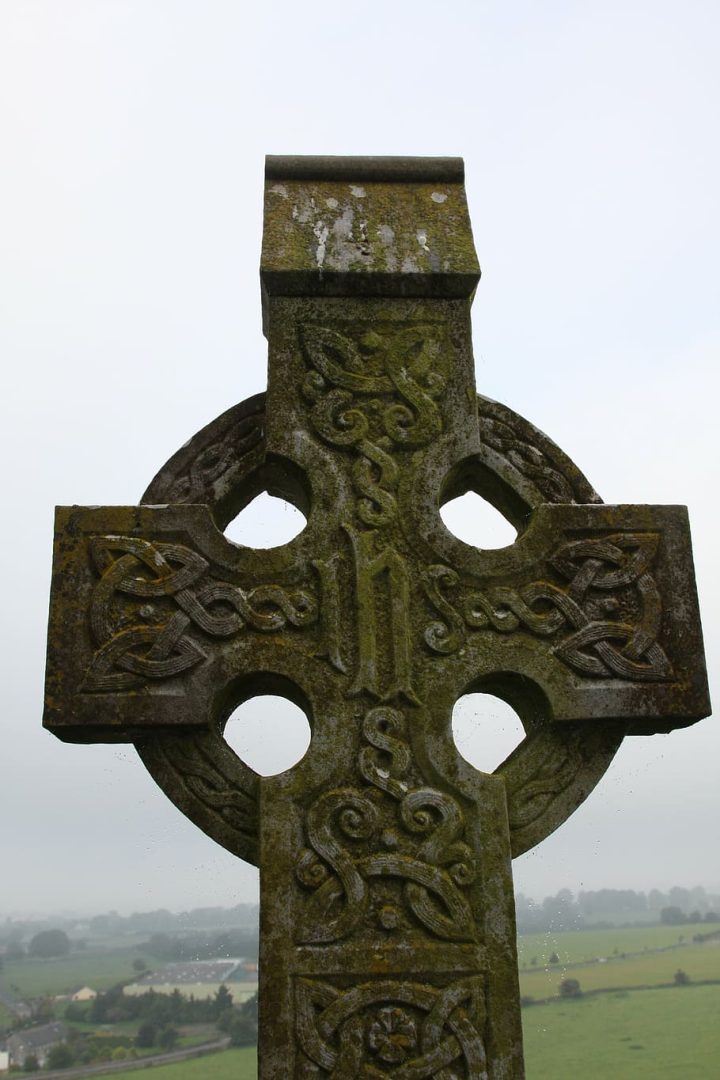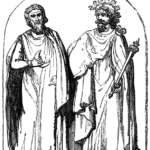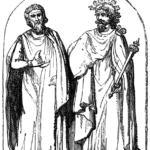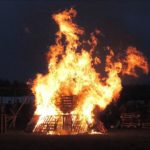In Celtic tradition, particular times of the year are celebrated to acknowledge certain natural energies-celebrating the eight Sabbats.
Wheel of the Year
Your Celtic ancestors worked within a ‘Wheel of the Year‘ that reflected the cyclical nature of the seasons.
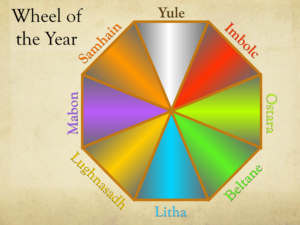 This wheel had eight spokes, four of which marked annual events connected to the movement of the Earth and Sun: the two solstices (the longest and shortest days) and the two equinoxes (when day and night are of equal length). The others marked times of agricultural and environmental significance. In Celtic traditions, these eight festivals celebrate the wheel’s turning and are known as the Sabbats.
This wheel had eight spokes, four of which marked annual events connected to the movement of the Earth and Sun: the two solstices (the longest and shortest days) and the two equinoxes (when day and night are of equal length). The others marked times of agricultural and environmental significance. In Celtic traditions, these eight festivals celebrate the wheel’s turning and are known as the Sabbats.
Celtic New Year
The Celtic New Year is marked at Samhain (31 October). As the wheel turns it moves through Winter Solstice (21-22 December), Imbolc (2 February), Spring Equinox (20-21 March), Beltane (1 May), Summer Solstice (21 June), Lammas (4 August), Autumn Equinox (20-21 September) and round to Samhain again.
December to February
December to February-at Midwinter (21-22 December) you embrace loved ones under the Druid’s sacred branch, mistletoe, and exchange Yuletide gifts. Towards Imbolc (2 February) days become longer and brighter, and you celebrate the return of the sun. Christians call this fire festival Candlemas. It was also known as Oimelc, ewe’s milk’, as this is the time of the first spring lambs.
February to May
February to May-at Spring Equinox (20-21 March) the days and nights are of equal length and you put your clocks forward to increase the daylight hours. Delicate primroses bloom and daffodils nod in brisk breezes. As you move through April towards Beltane (1 May) all of nature is bursting with new life and your own thoughts turn towards romance and creativity.
May to June
May to June-from Beltane you experience a resurgence of energy in nature and in yourself. All of creation is blooming and so are you. Bluebells dance and the hedgerows are glorious with the fragrant blossoms of hawthorn, elder and wild rose. It is a time of great achievement and activity. Everything in nature is waxing to its fullest as you move towards the longest day.
June to August
June to August-marigolds’ mirror the full strength of the sun on Litha-Solstice Day (21 June). This joyful Midsummer festival is a celebration of the earth’s fertility, creativity, and vitality, as well as your own.
Bees and butterflies seek nectar of golden afternoons and balmy evenings as the wheel turns to Lammas, the festival of the first fruits of the year.
August to September
August to September-Lammas (4 August) means loaf mass’ as you now see poppies in fields of ripened corn; between now and Autumn Equinox (20-21 September) that golden corn will be harvested and bread baked from the grain. The juicy hedge-fruits appearing now give you an indication of how good the harvest will be-both in the natural world and in your own life.
September to October
September to October-as trees shed brown leaves, nuts, and seeds, you move from autumn to winter through to the Celtic New Year at Samhain (31 October). Traditionally, the veils’ between the worlds’ are thinnest at this time and the ancestral spirits draw closer to you. You can light a candle to welcome them and carve a pumpkin jack-o-lantern to ward off mischievous fairies.

